Israel’s immunity cracks: The Hague goes after Netanyahu
The recent application for arrest warrants shows that even those backed by Washington can’t get away with everything
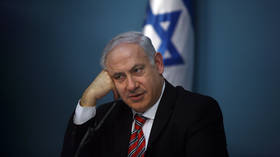
The challenge of witnessing a historic event in real time isn’t to notice it. That’s the easy part. What’s hard is to understand its meaning for the future, which is what historic events are really all about. Recent news from the International Criminal Court (ICC) in The Hague have confirmed that rule.
Its prosecutor, Karim Khan, has applied for arrest warrants that will make history one way or the other. The official application is a long document, but its key points can be summarized quickly. With regard to what Khan describes as “an international armed conflict between Israel and Palestine, and a non-international armed conflict between Israel and Hamas running in parallel,” he accuses the senior Hamas leaders Yahya Sinwar, Mohammed Al-Masri (aka Deif), and Ismail Haniyeh of a list of crimes against humanity and war crimes: extermination, murder, hostage taking, sexual violence (including rape), torture, cruel treatment, outrages upon personal dignity, and other inhumane acts.
Khan also accuses Israeli Prime Minister Benjamin Netanyahu and Minister of Defense Yoav Galant of a similar set of crimes against humanity and war crimes: starvation of civilians as a method of warfare, willfully causing great suffering or serious injury, cruel treatment, willful killing, intentionally directing attacks against a civilian population, extermination and/or murder, persecution, and other inhumane acts.
Applying for the warrants is not the same as the ICC actually issuing them. For that to happen, three of its judges, sitting as a pre-trial chamber, have to grant Khan’s applications. But this fact makes little difference. First, because rejection of such applications at this stage is, as legal experts agree, “very rare.”
Second, and more importantly, the political impact of Khan’s request alone is already profound and irreversible. Even if his applications were to fail in the pre-trial chamber, such an outcome would only damage the ICC’s already fragile credibility, especially if it were to act with obvious bias, by, for instance, granting Khan’s request regarding the Hamas leaders but not for the Israeli ones. In such an improbable scenario, the message of the rejected warrant applications would continue reverberating; indeed, it would only become even more resonant.
But what is that message and what will be its main effects? It is certain that they will be political rather than strictly judicial, because one thing that will not happen – at least not soon or easily – is actual arrests. The ICC is special in that, based on its foundational Rome Statute of 1998, it is the only permanent international tribunal empowered to pursue individuals for genocide, crimes against humanity, and war crimes. (Unlike the older International Court of Justice, also based in The Hague, which can deal with similar crimes but only while targeting states. Israel as a state is, of course, already the subject of ongoing ICJ processes, likely to receive a boost from the ICC joining the fray.) However, the ICC does not have its own police force to detain suspects and instead has to rely on the 124 states that have signed up to the Rome Statute. For both the Hamas and Israeli leaders in question, the warrants are likely to merely make traveling more complicated, at least for now.
There are many other good reasons to be skeptical about Khan’s move. This is very far from some simple, Hollywood-style comeuppance for the bad guys. For one thing, it’s very late. Israel’s genocidal attack on Gaza – and the West Bank as well, with less but ever-increasing intensity – has been going on for seven months.
Even cautious jurists must act much faster in such an emergency. Not to mention that the ICC has been delaying obviously needed action on Israeli crimes for years already. It took a raging, essentially live-streamed genocide to finally wake it up; and even then, it moved with glacial speed. So, let’s not idealize Khan and his team. History may well remember them more for their inexcusable tardiness than for what they have now, finally, done, which is, after all, merely their job.
Second, it is very disappointing to see only two Israeli officials targeted, at least at this point. It is true that so much of Israeli society is participating in these crimes, that – as with Germans and their Nazism – going after literally every single perpetrator may well be practically impossible. Yet, at the top and cutting edge, as it were, this ongoing genocide has been the vicious work of a plethora of easily identifiable politicians (why not charge the whole so-called War Cabinet, for starters?), along with soldiers and police high and low.
And what about those known representatives of what counts for “civil society” in Israel who have, for instance, systematically blocked humanitarian aid for the victims (in collusion, obviously, with Israeli officials). Let’s not forget the contribution made by Israeli media either – words matter. Inciting genocide is a crime, too. In 2008, the International Criminal Tribunal for Rwanda rightly convicted the singer-songwriter Simon Bikindi, not for any hands-on killing but for a murderous speech. Khan, to be fair, has been clear that more cases may still follow.
Third, Khan’s demonstratively simultaneous targeting of Israeli and Hamas leaders has drawn sharp and plausible criticism as well. Read closely, his application betrays a disingenuous desire to signal symmetry where there is none in reality. Hamas’ violence on and after its attack of October 7 is certain to have some criminal features that deserve prosecution. Hostage taking, for one thing, is a clear case, while systematic sexual violence alleged again by Khan and used heavily as a point of Israeli propaganda, has not been confirmed by evidence so far. The key point, though, is that under international law, Hamas armed struggle is principally legitimate because it is the armed resistance to which the Palestinians have a clear and incontrovertible right.
Hamas and its allies legitimately attack Israeli military targets; they did so – not exclusively but to a large extent – on October 7 as well. Indeed, the stunning if temporary military success of the Palestinian resistance on that day, puncturing supremacist Israeli conceits of invincibility, is one reason for the pathological ferocity of the Israeli response.
Not to speak of the simple yet usually overlooked fact that, with the rest of the world largely abandoning Israel’s Palestinian victims to their fate, Hamas, its Qassam Brigades, and their allies are the only force on the ground standing between Palestinian genocide victims and Israeli perpetrators. An uncomfortable fact causing sensations of cognitive dissonance? Blame those, then, among the international community who have not defended the Palestinians.
Israel, on the other hand, is as fundamentally in the wrong as the Palestinian resistance is fundamentally in the right. Israel cannot actually claim a right to “self-defense” against a population it occupies. In reality, as an occupying power (yes, for Gaza as well, notwithstanding its deceptive 2005 “withdrawal”), it has obligations toward that population under international law, all of which it perverts into their grotesquely vicious opposite.
For instance, where it must, according to the International Committee of the Red Cross, “ensure […] that the basic needs of the population of Gaza are met […] that Gaza is supplied with the food, medical supplies and other basic goods needed to allow the population to live under adequate material conditions,” Israel has blockaded, starved, and massacred regularly, even before this latest escalation.
In sum, Hamas commits some crimes within a legitimate liberation struggle, as do virtually all resistance organizations in history without thereby losing their principal legitimacy under international law. But, also under international law, Israel’s whole struggle is one great crime. That is the key difference which Khan’s approach has obfuscated.
And it is this obfuscation that, in all likelihood, explains a glaring anomaly in his application. As at least one observer has noted, the crimes of which Khan accuses Netanyahu and Gallant strongly overlap with those listed in the 1948 UN Genocide Convention. In effect, Khan has pulled off a strange and disturbing trick: He has charged them with genocide, while pretending he is “only” talking about crimes against humanity and war crimes.
The most plausible explanation for this inconsistency is that he needed it to keep up the pretense of “equivalence” between Hamas and Israel. Yet, in reality, it is Israel and only Israel that has been committing genocide. If Khan had acknowledged that crucial fact in his application, then he would have had to also recognize the principal difference between the two sides.
And yet it is important to note what the applications are not trying to do because they cannot: There is no hint of Israel’s standard propaganda that the Palestinian resistance as such is nothing but criminal (or “terrorist”). On the contrary, the flip side of Khan’s suspicious move is that he also, implicitly but clearly, acknowledges that the Palestinian armed struggle as a whole is not criminal, only specific acts within it can be.
With all its flaws, it would still be shortsighted to underestimate the significance of Khan’s applications, for several reasons which cannot all be discussed here. The most important of these, in any case, is that the ICC prosecutor going after Israeli Prime Minister Benjamin Netanyahu and Minister of Defense Yoav Gallant is a crippling blow to Israel’s most crucial political resource: its impunity.
And “crucial” is to be understood literally here because Israel does not occasionally break the law, as many states do. Rather, Israel cannot possibly exist the way it does without constantly breaking the law. Its formal and de facto annexations and settlements (East Jerusalem, the Golan Heights, and really most of the West Bank), its nuclear arsenal, its routine attacks (including on diplomatic compounds) and assassinations outside Israel, and, last but not least its apartheid regime to subjugate the Palestinians – all of it brazenly defies international law. (For apartheid is not just the name of a specific, now historic regime and crime in South Africa. Rather, it is a recognized atrocity crime, just like, for instance “extermination,” even if that fact is too little known.) And that is before we even start talking in detail about Israel’s massive record of typically settler-colonial crimes against humanity, war crimes, ethnic cleansing, and genocide against the Palestinians that, of course, reaches back decades.
Israel, in short, is not an ordinary country. In reality – expressed in a “liberal” centrist idiom – it is the single most condensed case of a rogue state in the world, and it has enjoyed an extraordinary privilege of impunity. As John Mearsheimer pointed out years ago, there simply “is no accountability” for Israel. It is, literally, a state accustomed to – and dependent on – getting away with murder.
That situation is, again, in Mearsheimer’s words, “outrageous.” But what is more relevant in the context of the recent ICC actions is that this impunity is not a luxury for Israel. It’s a vital necessity. A state that is so akin to an ongoing criminal enterprise is fundamentally threatened by being held up to any international legal standards. Like all genocidaires, Benjamin “Amalek” Netanyahu and Yoav “human animals” Gallant are horrible individuals, but they are dispensable. What the Israeli establishment and the international Israel lobbies are really afraid of is not what may happen to these two, but what the warrants against them signal about the future of Israel’s extraordinary privilege.
Whatever Khan’s intentions, whether he has done so deliberately or, perhaps, even while trying to “soften the blow,” as his critics suspect, his applications mark a catastrophic and irreversible breach in Israel’s hitherto unique armor of impunity. Think about it: If this is the best your friends can do while still trying to favor you, your days may be numbered.
And what about those Western leaders, high officials, but also lowly bureaucrats, who have supported Israel with arms, munitions, intelligence, diplomatic cover, and, last but not least, the vigorous suppression of solidarity with the Palestinian victims? Those residing in Washington may feel safe. Not because the US does not recognize the jurisdiction of the ICC. That is, in reality, a formality. It is American power and lawlessness that, for now, protects them. Predictably, they have, with President Joe Biden in the lead, displayed insolent defiance toward the ICC, in effect claiming that Israel, just like the US, is above the law. Their usual barefaced lies – for instance, the absurd claim that the ICC has no jurisdiction (obviously, it has because Palestine is a recognized signatory of the Rome Statute: case closed) need not detain us.
But the situation is different for America’s clients. They cannot feel so secure. Longstanding, hardline supporters of Israel’s current crimes, such as German Chancellor Olaf Scholz or Foreign Minister Annalena Baerbock, to name only two, must now begin to understand, if they admit it or not, that their actions as well are very likely to have been criminal. Because the Genocide Convention criminalizes not only perpetrating a genocide but also complicity in it. In addition, it imposes the obligation on every signatory state to prevent genocide.
Could such likely accomplices ever end up prosecuted, whether internationally or even at home? An unrealistic idea? Hard to imagine? How could such luminaries of the West ever face the same justice that they meant to reserve, as Khan was reminded by one of them, for Africa and Russia? And yet, before last week, many of us would have considered it impossible that the ICC would really ever dare touch Israelis. The underlying fact, over which neither Karim Khan nor anyone else has control, is that the West’s power to impose its double standards is waning. In a new, multipolar world that is emerging inevitably, only one thing is certain: The times they are a-changing. No genocide perpetrator or accomplice should be too comfortable anymore, even in the West or among its favorites. The days of privilege and impunity are coming to a close, one way or another.
The statements, views and opinions expressed in this column are solely those of the author and do not necessarily represent those of RT.
https://www.rt.com/news/598059-hague-netanyahu-hamas-israel/
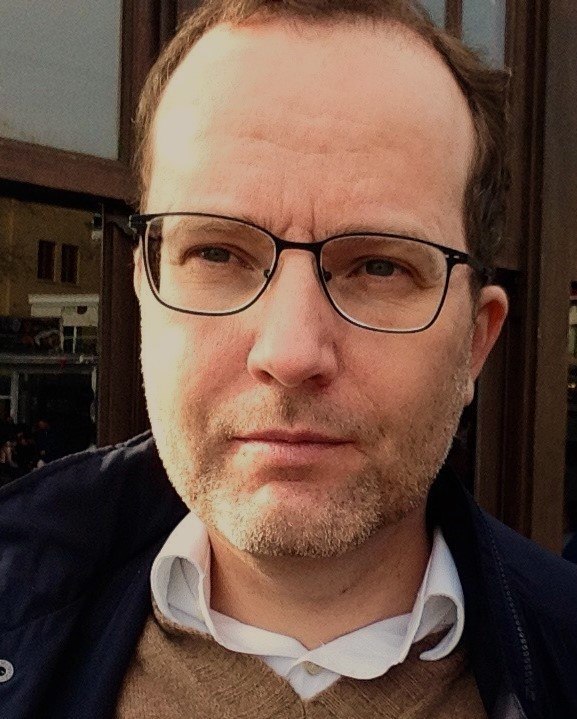
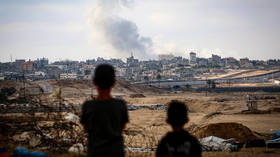
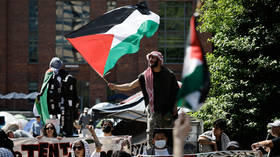
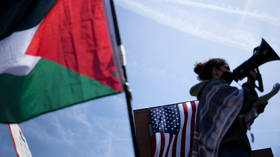

0 Comments:
Post a Comment
Subscribe to Post Comments [Atom]
<< Home